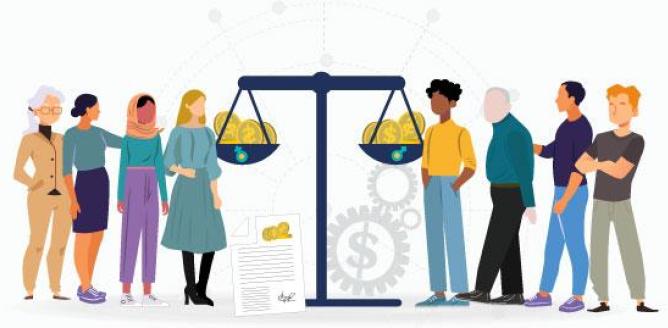A new report released last week by McKinsey and Lean In, the organisation founded by Facebook’s Sheryl Sandberg, shows that women are still struggling to advance in the workplace.
For every 100 women promoted past entry level positions, 130 men are promoted. Women are less likely to receive challenging assignments, participate in meetings and have access to senior leaders. And the pipeline of promotion shows women are being passed over at every stage. Note: men and women are dropping out of the workplace at equal rates, so the numbers can’t be blamed on attrition.
To compile the study, McKinsey used data from 132 US companies, representing 4.6 million workers at companies like Visa, General Motors and Proctor & Gamble. It also conducted a survey of 34,000 employees to get a more nuanced view of their experiences at work.
The survey revealed that more women than men asked for a raise, 29% to 27%, and in response, 30% of women were told that they were being “bossy,” “aggressive,” or “intimidating,” compared to 23% of men.
Women also said they receive less feedback from managers than men. While 46% of men say they receive difficult feedback, only 36% of women do. Managers explained that the biggest reason they fail to give women feedback is a fear of being mean or hurtful.
Notably, less than half of the companies McKinsey examined require diverse slates of candidates for hiring and promotion, and only 56% review job descriptions to ensure they’re free of biased language. One easy procedure to weed out biases in hiring is using blind resume reviews—removing names and other details from resumes that indicate gender and race—but only 4% of companies say they do this.
Writing in last week’s Wall Street Journal, Sheryl Sandberg urged employers to not only track their gender breakdown in hiring and promotions but to set clear targets for where they’d like those numbers to be. Fewer than 35% of companies have targets in place — and it’s harder to make progress when you don’t have clear goals in place. According to Sheryl, “Companies also need to make a stronger case for gender diversity, explaining why it matters and how it benefits everyone. They can invest in gender-bias training — especially for managers, who make many of the decisions that affect women’s daily work experience and career progression. Companies can also encourage everyone, from entry-level employees to leaders, to talk openly about gender stereotypes and provide women with more leadership opportunities, access to sponsors, and recognition for their contributions. And all of us can encourage women to keep negotiating—until the day that it’s seen as perfectly normal, and even expected, for women to ask for more”.
If the study reveals how much work is left to be done to create gender equality in the workplace, the good news is that so much of this work is not complicated or difficult, and many firms are already doing it. For instance, we know that many of TWF’s corporate partners are alive to these issues and are constantly trying new approaches to tackle both institutional barriers to the advancement of women as well as daily micro-inequities. Onwards & upwards everyone!





















